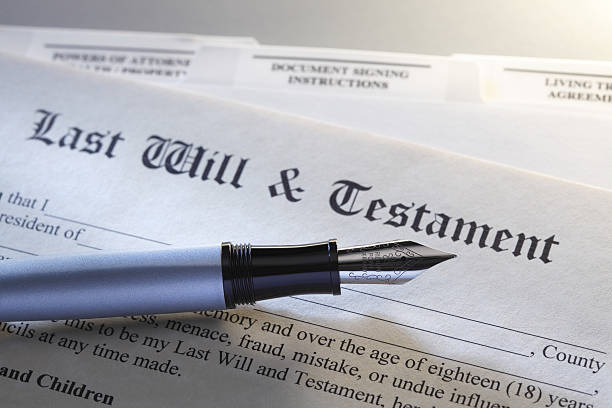Your Guide to Finding the Right Will Solicitor in the UK
Making a valid will is vital for protecting your estate and ensuring that your family is cared for after your passing. Choosing the right solicitor can make this process smoother and more effective. This guide explores what will solicitors do, how to find one locally, what they charge, and how to prepare for your appointment.
Making a valid will is vital for protecting your estate and ensuring that your family is cared for after your passing. Choosing the right solicitor can make this process smoother and more effective. This guide explores what will solicitors do, how to find one locally, what they charge, and how to prepare for your appointment.

The Value of a Will Solicitor
A will solicitor is a trained legal professional who ensures your will is properly written, compliant with UK law, and accurately reflects your wishes. They begin by examining your financial circumstances and family situation—including any properties, savings, or investments you hold.
Based on this information, the solicitor will draft a will that specifies how your assets should be distributed. This includes appointing an executor, naming guardians for minor children, and detailing any special bequests. The goal is to minimise confusion or potential disputes after your death.
In addition to writing your will, many solicitors provide guidance when your circumstances change—such as through divorce, marriage, or the acquisition of new assets—ensuring your will remains up to date.
Locating a Qualified Solicitor Near You
You can find a reputable solicitor through several reliable channels:
-
Online Directories: Websites like the Law Society’s official directory let you search by postcode and legal area. You can check qualifications and read client reviews.
-
Word of Mouth: Ask relatives, friends, or financial consultants for recommendations. Personal referrals often lead to trusted professionals.
-
Professional Organisations: Use directories provided by groups like STEP, which lists specialists in trusts and estate planning.
Before committing, check that the solicitor is authorised by the Solicitors Regulation Authority (SRA) or affiliated with STEP to ensure professional standards.
Fee Structures for Will Writing
Solicitor fees vary depending on how complex your estate is and the level of expertise involved.
-
Basic Wills: If your estate is simple—perhaps with a few assets and no trusts involved—many firms offer fixed-fee packages. These are often affordable and provide peace of mind.
-
More Involved Wills: If you own businesses, foreign property, or require detailed planning, expect higher charges. These are usually billed by the hour or at a higher fixed rate.
Always request a clear breakdown of costs during your first consultation. Reputable solicitors will be transparent and help you understand the value of the service you’re paying for.
Evaluating the Best Solicitor for You
Choosing a solicitor is not just about qualifications—it’s also about compatibility and trust. When making your selection, consider the following:
-
Do they have extensive experience with estate planning and probate?
-
Are they part of a recognised legal association such as The Law Society or STEP?
-
Can they explain complex terms clearly and offer helpful advice?
-
Is their fee structure easy to understand with no hidden charges?
-
Do they come across as approachable and empathetic?
You’ll be sharing deeply personal information, so choose someone you feel comfortable speaking with.
How to Prepare for Your Appointment
Good preparation can significantly speed up the will-writing process and make it more efficient. Here are some steps to get started:
-
List Assets and Debts: Write down what you own (including property, investments, and pensions) and what you owe.
-
Name Your Beneficiaries: Clearly define who you want to receive specific parts of your estate. Don’t forget to include any charities or organisations if relevant.
-
Pick Guardians for Children: If applicable, decide who you trust to look after your underage children.
-
Appoint Executors: Choose someone responsible to manage your estate after your passing. This might be a relative, friend, or even a solicitor.
-
Plan for Updates: Review and update your will after life milestones such as moving house, getting married, or retiring.
Common Questions About Wills
Is it legal to write my own will?
Yes, you can, but it carries risks. Mistakes could make the will invalid or open to legal challenges. A solicitor ensures everything is done correctly.
What’s the typical timeframe for creating a will?
For straightforward cases, the process can be completed within a week. More complex estates may require additional time for tax or legal planning.
What if I don’t create a will at all?
If you pass away intestate, your estate will be distributed according to set laws, which may not reflect your wishes. Loved ones could be left out unintentionally.